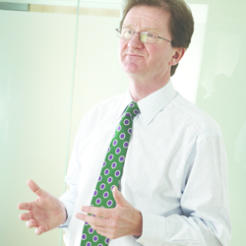The Charity Commission has announced a partnership with the Institute of Chartered Accountants in England and Wales (ICAEW) that will see the Institute’s members volunteer to review individual charities' financial systems to identify risks and hopefully stop other organisations falling victim to them.
The review programme will be implemented by the ICAEW’s Charity and Voluntary Sector Group, which is seeking 25 charities and 25 accountants to kick it off.
The results of each review will be analysed and fed through to the Charity Commission without identifying the parties involved. This anonymised intelligence will help the regulator to prepare relevant guidance to help the sector address the risks identified.
Commission chief executive Sam Younger said: “We really hope this programme will prove useful not only to the individual charities taking part but to the sector more widely.”
Younger said the ICAEW collaboration is intended to be the “toe in the water” for a broader peer review programme to be implemented by the Commission together with charities, professional bodies and other relevant partners.
“The starting point for this is risk,” he told the ICAEW group conference this morning, “and how can we do it in a way that does not land the sector with huge costs.
“What we have come up with is a way of putting together people with expertise in identifying and managing risks with a group of charities who would like to have what some might say is free consultancy.”
Financial probity is crucial to public confidence in charities, he said, as so much research suggests that donors are more concerned about money getting through to the end cause than about anything else.
The review reports that are delivered to the Commission will be made public, he confirmed.
Younger said the underlying aim of the review programme was to help effect a culture shift to a more self-reliant sector that takes a more pro-active approach to risk management rather than always expecting the Commission to be responsible for it.
“I am convinced this is the right approach for a 21st century regulator,” he said.
In response to a question about how the programme would help to catch out those charities that don’t comply with the law on financial reporting, Younger said the role of the Commission’s compliance staff would become even more important: “If anything, we are going to have to focus on it harder,” he said.
This is likely to involve more “random dipstick audits” of charities, he said, because the threat of these is an effective deterrent to fraudulent activity.
Charity Commission announces peer review partnership with professional body
13 Sep 2011
News
The Charity Commission has announced a partnership with the Institute of Chartered Accountants in England and Wales that will see the Institute’s members volunteer to review individual charities' financial systems to identify risks and hopefully stop other organisations falling victim to them.

Sam Younger, chief executive of the Charity Commission








